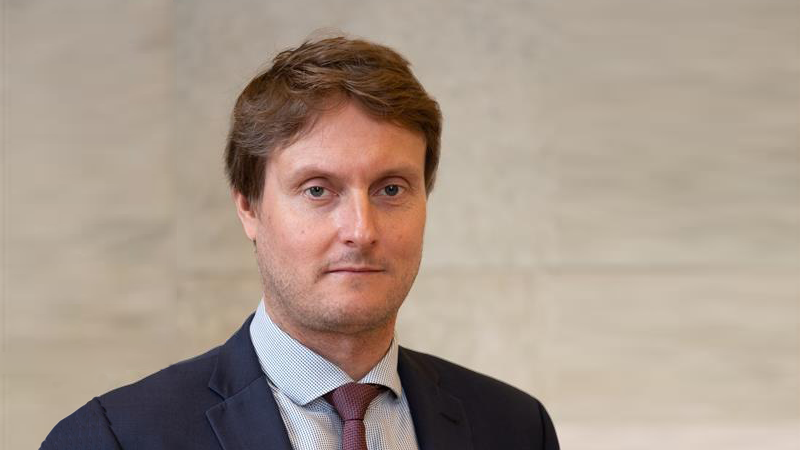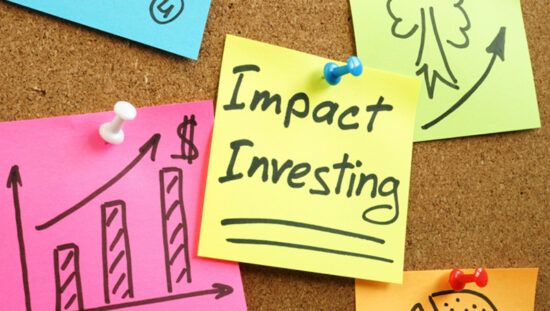COP29 has arrived and, despite some welcome signals of intent on introducing a high-integrity international carbon market, and the opening of the Loss and Damage Fund, reaction so far has been muted, with some even going as far as saying the COP process is “no longer fit for purpose”.
Others lamented the fact that several global banking leaders, including Bank of America, BlackRock, Standard Chartered and Deutsche Bank, as well as national leaders from the world’s largest polluters, including the EU, China and the US, were notably absent. Meanwhile, the president of the host country, Ilham Aliyev, called oil and gas “a gift of god” during his address at the opening of COP.
Given this context, PA Future spoke with UNEP FI’s Remco Fischer – who is responsible for their initiatives on climate change – to find out insights from on the ground and how finance is the spearhead for negotiations this time around.
What is the mood at COP29 like, and, compared to previous years, how well attended has it been?
It’s pretty well attended, I’m quite surprised by how many people are here as it was meant to be a smaller COP by design, especially in contrast to the COP last year in Dubai, which, by design, was huge. I think in Dubai last year, the number of attendees reached, by some estimates, 100,000 people. Here, the figures are around 60,000 to 70,000, which is a good sign. Some of that number is government officials, but they only make up a small core of the numbers. The bit that fluctuates up and down are the non-state actors from the private sector. That number is a lot higher now than it used to be.
In terms of mood, it’s always very focused. At the beginning of the negotiations, you have different negotiating groups laying out their positions and their lines, and that’s what has been happening here. I haven’t witnessed anything out of the ordinary way of doing things.
COP29 has been dubbed ‘the Finance COP’. How is the role of the investment community being spotlighted this year?
What’s happened in recent years is there’s a much better understanding by all parties and when you talk about finance, you need to do so with a level of nuance. You can’t just be talking about billions, or trillions or whatever. There’s a level of sophistication in terms of understanding we need public, we need private, we need international cooperation, we need to make a distinction between historically industrialised and developed countries, but also newly industrialised countries, some of which are as wealthy as the historically industrialised countries. So, all of these nuances are now firmly on the table and can be negotiated upon, depending on the interests of your negotiating block.
If I go back to the early 2010s when I started going to COPs, that nuance was nowhere to be seen. It was only about government-to-government finance, period. That’s not very conducive, because there’s only so much you can do that way in terms of impact and transforming industries. Countries need to work together, but they also need to work domestically with their private sectors to deliver on the Paris Agreement. Now, there’s probably no country that would say that private climate finance isn’t important.
The reason why people say private finance is part of the solution is that the latest figures show the total envelope of climate finance is at $1.3trn – that’s not bad, but that figure needs to quadruple quickly. So, that’s bad news number one. Bad news number two is what’s needed in developing countries because most of the finance at the moment is falling into developed countries – OECD countries and China. So, if the bulk of that $1.3trn in climate finance is going to those countries, and that needs to quadruple, we need even more than that to provide finance for developing countries. And, with the challenge in front of us, of economic and industrial transformation – given the fiscal situation in many developing countries – the answer is clear.
What announcements and initiatives should the investment community be aware of?
As we just discussed, private finance is a really important negotiating item. Another one is carbon markets. Similar to private finance, most people agree that carbon markets can be an incredibly catalytic instrument to drive decarbonisation because, if you reduce the cost of decarbonisation, you can decrease emissions more quickly. At the same time, markets need to be credible. If you’re generating a credit, there needs to be real emissions reduction or removal behind that credit.
Those two things are compatible – you can have a high-credibility market as well as a highly functioning, dynamic, vibrant carbon market, and that’s what people, including the UNEP FI would get behind. And of course, on day one, a number of decisions were made at the outset, including Article 6.4, the more centralised part of the market. That’s a positive signal to the private sector, I think.
Two other things: first, the New Collective Quantified Goal (NCQG). One of the things the UNEP FI is launching today (14 November) – with partners including the PRI – is a consolidated set of recommendations coming from financial practitioners and financial experts on what the design features of the NCQG should look like by the end of next week. The real innovation here is that it’s not only coming from private financial institutions like the ones that would typically be mobilised by UNEP FI or the PRI, but it’s also coming from development finance institutions, public development banks, and networks that represent institutions along those lines from developed and developing countries. So, it’s a pretty global thing that we’ve orchestrated, and, because of that, they’re able to depoliticise it all a little bit because they’re speaking purely from their experience, they’re talking about objective facts.
Second, yesterday (13 November) the youngest UN-convened Alliance – the Net Zero Export Credit Agencies Alliance – published their Target Setting Guidelines, guidelines that members will follow to help set their portfolios to align with the Paris Agreement and to green their portfolios. They made their commitment last year, and they’re following through with it this year by releasing this strong set of guidelines, and I think that sends another strong signal about the process.
On the NCQG, how confident are you that an agreement can be achieved by the end of COP29?
It’s hard to say. There’s a real possibility there will be a breakthrough, but there’s also a possibility there isn’t. There have been a lot of negotiations since Dubai on this, or even since Paris on this. Ministers are briefed, they know of the trade-offs, and they know of the pressure to deliver, so I’m cautiously optimistic. But, even if they do not agree it this year, the decision is not going to go away. It may have to be taken in Belém next year.
What I can tell you is that in the event there isn’t an agreement, we will, as UNEP FI, with the partners that I’ve mentioned and based on the recommendations that we’re issuing today, we’re going to try to use the additional time that we win from a potential failure and build a much stronger campaign.
What has been your top takeaway so far, and what would you like to see more of going into next week?
Well, my takeaway has been that so far, you look at participation numbers, you look at the things that we’re launching, you look at the things that have come out of the private sector in the lead-up to COP… People are making this a priority. There’s still confidence by all of these stakeholders that real progress will be made here, despite the criticisms around whether we need net zero or that it’s too expensive, and I’m seeing steady momentum.
In terms of what I hope to see going forward, ideally on these key topics of NCQG and also on the carbon markets, ministers are well briefed for the ministerial discussions and they’re able to find compromise, because that’s surely what they want, right? They don’t want to go away empty-handed from COP. They want strong compromise. They can only do that if they’re well briefed, they understand the trade-offs at hand, and they’re able to approach each other on this. That’s the hope.








